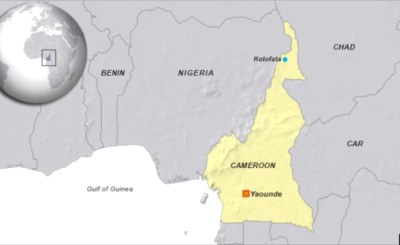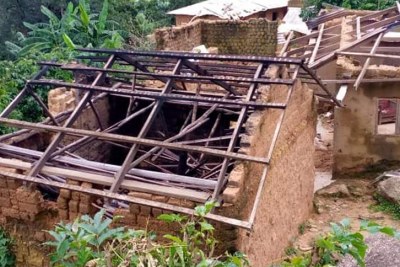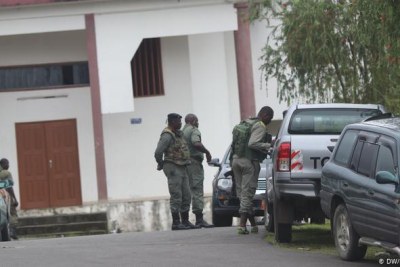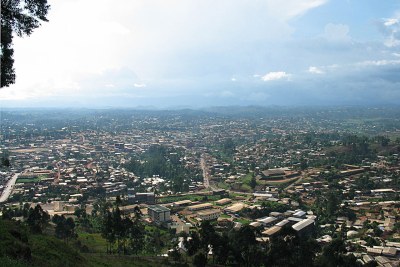-
Cameroon: Cameroon's Anglophone Crisis - How the Common Law Court Offers a Ray of Hope
The Conversation Africa, 15 December 2022
Six years on, the crisis in the Anglophone (English-speaking) regions of Cameroon continues. Recent reports indicate that over 6,000 people have been killed. Read more »
-
Cameroon: Cameroon Says Peace and Civilians Returning in Restive Regions
VOA, 15 December 2022
Cameroon governors say several thousand of the 750,000 people displaced by the separatist conflict in two western regions are returning home for the first time since hostilities… Read more »
-
Cameroon: Cameroon Rights Groups Demand Protection of Displaced Women and Children From Rights Abuses
VOA, 9 December 2022
Ahead of World Human Rights Day this Saturday (12/10), Cameroonian rights groups are protesting what they call dehumanizing treatment of women and children displaced by the… Read more »
-
Cameroon: Govt Hands Road Construction to Military Following Separatist Attacks, Abduction
VOA, 7 December 2022
Cameroon's military has taken over construction of roads linking its troubled western regions to Nigeria after what it said were repeated separatist attacks. The military says the… Read more »
-
Cameroon: Cameroon Welcomes US Indictment of Suspected Separatist Sponsors
VOA, 5 December 2022
Cameroon's government is praising U.S. authorities for arresting three Cameroonian Americans accused of supporting separatist violence in the country's western regions. The three,… Read more »
-
West Africa: Cameroon Struggling to Rein in Arms Smuggling From Chad, Nigeria
VOA, 22 November 2022
Cameroon has blamed arms smuggling from its neighbors for fueling Boko Haram terrorism, anglophone separatists, and crime. The military says it has recovered only a small fraction… Read more »
-
Cameroon: Cameroon Says Conflict Prevents Access to AIDS Treatment
VOA, 1 December 2022
Cameroonian health workers and people with HIV marched for World AIDS Day on December 1, calling for access to treatment for patients in conflict areas. Read more »
How Common Law Brings Hope to Cameroon's Anglophone Crisis
Six years on, the crisis in the Anglophone (English-speaking) regions of Cameroon continues. Recent reports indicate that over 6,000 people have been killed, writes Laura-Stella Enonchong for The Conversation.
Cameroon was colonised by Britain and France - occupying 20% and 80% of the territory respectively. They introduced both their language and their legal traditions in their respective spheres of influence.
The conflict's origins lie partly in the fact that Cameroon applies two different systems of law. Anglophone lawyers say the system marginalises the common law. So, the Anglophone regions apply the common law. The Francophone regions apply the civil law.
In Cameroon, the common law and the English language have been systemically undermined by the predominantly Francophone government. At the level of the Supreme Court, the predominant application of the civil law often left common law litigants without justice, writes Enonchong.
InFocus
-
In a video widely circulated on social media platforms, Cameroon's English-speaking separatists have for the first time acknowledged deadly clashes between s Read more »
-
The conflict in Cameroon keeps escalating with the death last week of soldiers in a rocket attack on their convoy in Manyemen Koupé-Manengouba sub division Read more »
-
Military officials in Cameroon have said that armed separatists killed at least six people and wounded nine when they attacked a bus on a highway in the village of Ekona, in the ... Read more »
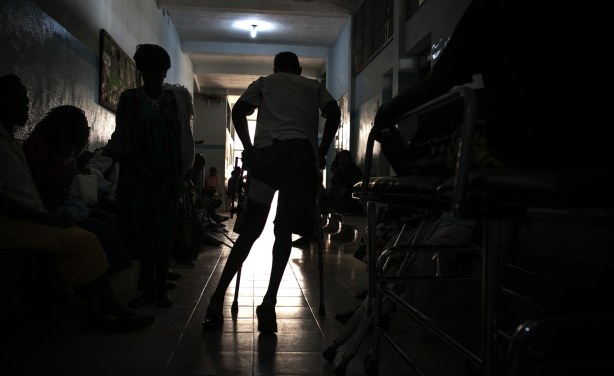
A patient leaves Saint Mary Soledad’s outpatient consultation corridor in Bamenda - each year, thousands of patients benefited from MSF support in a region where access to care has been reduced by armed violence. North-West region, Cameroon, March 2020.

